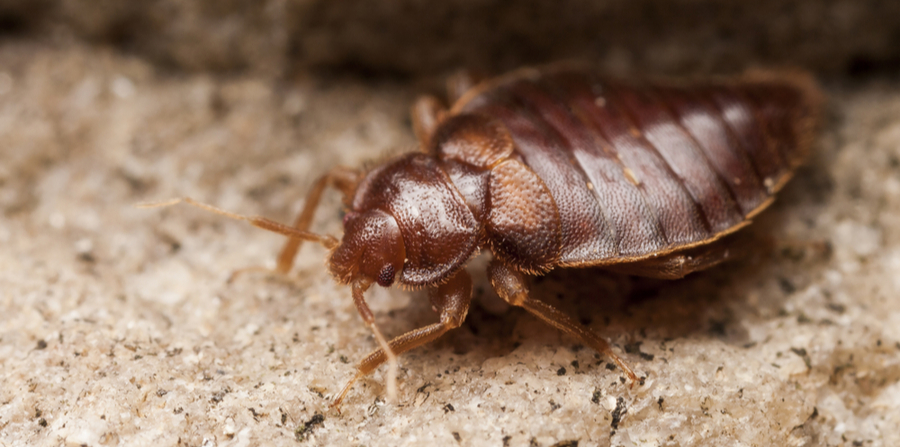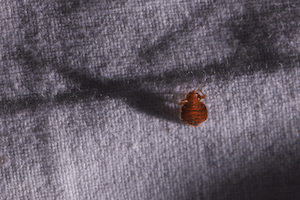This January, we updated you on the situation concerning bed bugs in Michigan. We predicted back then that the problem wouldn’t go away anytime soon, and unfortunately, we were right. In fact, it’s only become worse. This summer has been a banner season for bed bugs all over the US. We’ve answered the calls to prove it.
If you’re worried about bed bugs this summer, we can’t say we blame you. The best way to assuage those worries is to make your home bed bug-proof as best you can. The best way to do that is to understand how bed bugs work and how to counteract them. Here’s everything you need to know about this summer’s bed bug infestation, so you can do just that.
The Situation
It’s not just us–half the pest control companies in the US report that summer is their busiest bed bug season. The National Pest Management Association declared June 3rd to June 9th “National Bed Bug Awareness Week,” largely to get the word out. For our part, we’ve continued to take calls about bed bug infestations all over Michigan throughout summer. These calls from all kinds of places and people. Bed bug infestations can happen to anyone.
Why Summer?
 The big question: why are bed bugs more active in summer than other times of year, any way? There are two main reasons:
The big question: why are bed bugs more active in summer than other times of year, any way? There are two main reasons:
1. Heat
Bed bugs love heat. The hotter their environment, the more active they are, and the longer they remain active. That’s actually part of why bed bugs hunker down in mattress and sheets. When they move around more, they spread more. They can access more hiding places, including hiding places they might not otherwise find. The more diverse their hiding places, the greater the chance someone will accidentally transport them into a new home.
Heat also dehydrates bed bugs (just like it does to everything else). When bed bugs get thirsty, they’re more motivated to get moisture. Unfortunately, for them, moisture often means you. As if all that isn’t bad enough, heat also helps the bugs molt and grow faster. When they grow faster, they feed, reproduce, and spread faster, too. Heat weather accelerates bed bugs’ entire life cycle, which means they spread out more and infest more homes.
2. Travel
Overall, summer is easily the busiest travel time of year. Even the holiday seasons don’t come close, because they don’t last for months. You’re probably already tired of learning this, but bed bugs are consummate travelers. In fact, hitchhiking along with unsuspecting travelers is their primary means of spreading. They tag along inside your bag, luggage, sheets, or whatever else you’re transporting. Then, when you get unpacked, you’ve helped them move in without even noticing!
Unfortunately, we’re not exclusively referring to out-of-town travel, either. It doesn’t matter if your bed bugs came from a hotel 300 miles away or your neighbor’s house 5 miles away. Obviously, people move in and out of your home far more often during summer than other times of year. Often, they’re also carrying something in or out, too. Bed bugs are uncannily good at seizing on opportunities just like those to find a new place to live.
What Can You Do?
 First and foremost, figure out if you already have bed bugs. Strip your bed as bare as possible and check each component thoroughly. Don’t forget about the zippers, folds, and underside. Check around the bed too, in places like the headboard, frame, nightstand, and siding. If you find signs of an infestation, give us a call right away. Repeat the process with every bed in your home. Bed bugs are very small and flat, so we recommend using a flashlight to look for them.
First and foremost, figure out if you already have bed bugs. Strip your bed as bare as possible and check each component thoroughly. Don’t forget about the zippers, folds, and underside. Check around the bed too, in places like the headboard, frame, nightstand, and siding. If you find signs of an infestation, give us a call right away. Repeat the process with every bed in your home. Bed bugs are very small and flat, so we recommend using a flashlight to look for them.
After you’ve made sure you don’t have bed bugs, you just have to keep it that way. The best way to do that is to pay close attention to what’s coming into and out of your home. Bed bugs enter homes by hiding inside transported items. Whenever you bring in a piece of luggage from outside, inspect it thoroughly. Consider throwing anything you can into the dryer for 20 minutes after you bring it in. It sounds like a hassle, but it’s the best way to prevent bed bug infestations.
We expect to continue to receive all kinds of bed bug calls for the rest of summer, and beyond. Unfortunately, the upsetting insect is as tenacious as it is distressing. Bed bugs can come from just about anywhere and they can happen to just about anyone.
If you have a bed bug infestation, feel free to give Griffin a call. Like we said, we’ve fielded plenty of bed bug calls in the past. We’ve got all the tools, know-how, and experience we need to wipe yours out for good. Don’t let the bed bugs bite out of embarrassment; just give us a call and reclaim your summer!



 As of 2015,
As of 2015,  There are a couple theories about why bed bugs are back with a vengeance after their prolonged absence. Most disturbingly, recent studies show that bed bugs have developed
There are a couple theories about why bed bugs are back with a vengeance after their prolonged absence. Most disturbingly, recent studies show that bed bugs have developed  Alright, we’re not going to try to pass the blame onto someone else. The fact of the matter is, bed bugs are everyone’s responsibility. Buuuut… Ok, remember how Detroit was #3 on the list of worst cities for bed bugs? Well, Ohio cities Cleveland and Cincinnati ranked at #1 and #2, respectively. As major urban centers, thousands of people travel between each of these three cities every single day. They bring all their cargo and luggage with them–and often, their bed bugs, too!
Alright, we’re not going to try to pass the blame onto someone else. The fact of the matter is, bed bugs are everyone’s responsibility. Buuuut… Ok, remember how Detroit was #3 on the list of worst cities for bed bugs? Well, Ohio cities Cleveland and Cincinnati ranked at #1 and #2, respectively. As major urban centers, thousands of people travel between each of these three cities every single day. They bring all their cargo and luggage with them–and often, their bed bugs, too!  Bed bugs spread with travelers, so anywhere that sees lots of traffic is going to see more bed bugs. That means places like hotels are more likely to contend with bed bugs. They’re not the only ones, however. Any frequent traveler should be particularly careful about bed bugs, especially if they frequent hotels or travel with bags. This counts for people expecting company, too.
Bed bugs spread with travelers, so anywhere that sees lots of traffic is going to see more bed bugs. That means places like hotels are more likely to contend with bed bugs. They’re not the only ones, however. Any frequent traveler should be particularly careful about bed bugs, especially if they frequent hotels or travel with bags. This counts for people expecting company, too.